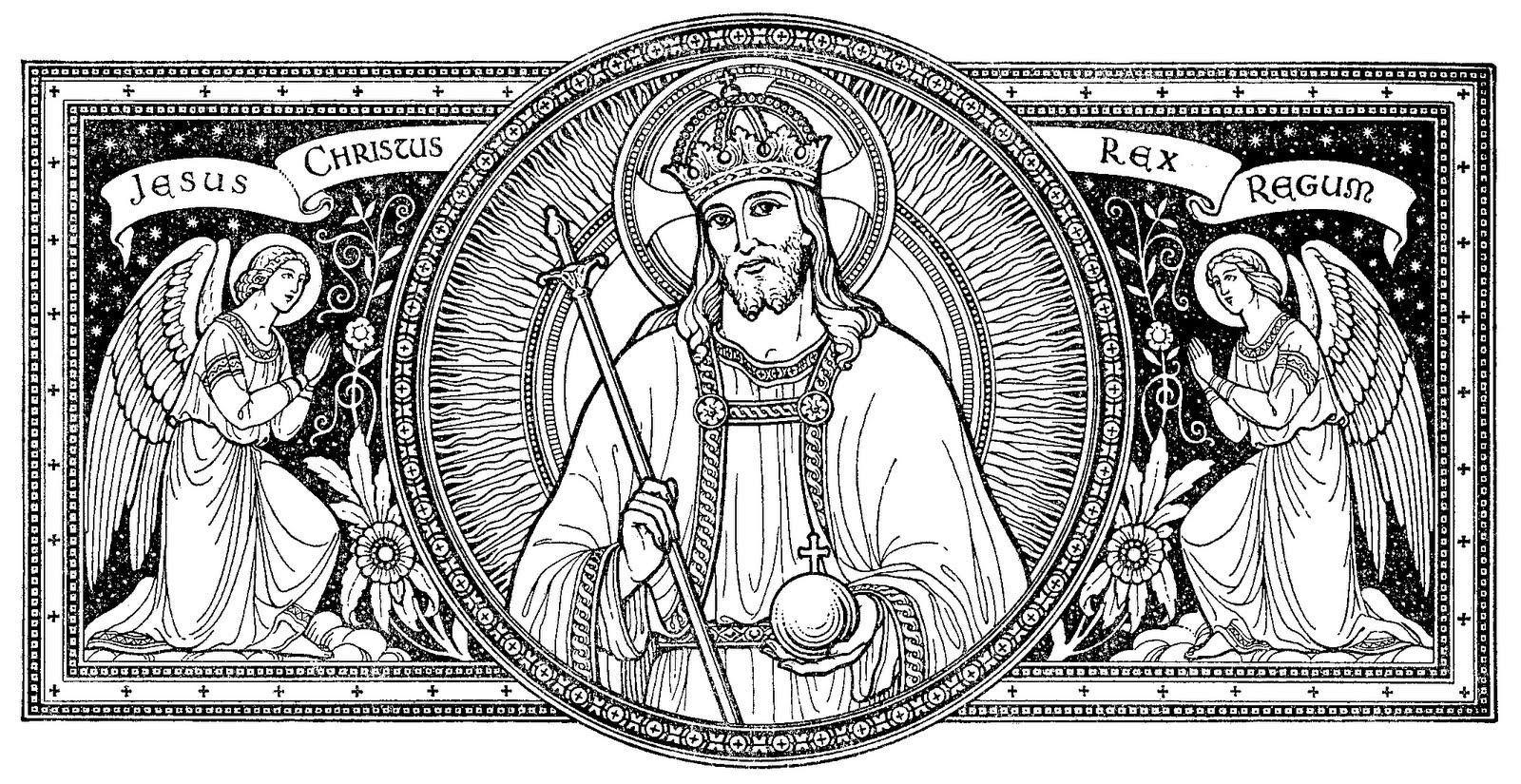“Christus vincit! Christus regnat! Christus imperat!” “Christ conquers! Christ reigns! Christ commands!” These words begin the great Christ the King hymn we will sing at the offertory today. The feast of Christ the King was brought into being in 1934 by Pope Pius XI in his encyclical Quas primas. Why would he do this in that particular year?
1934 was a fateful year in the world. Adolf Hitler had been in power as dictator for a year, and had established his complete authority over Germany. In the Soviet Union, Stalin had just completed the first Five-Year Plan to turn his country into a modern super-power, at the cost of uncountable lives and terrible economic and agricultural disaster, which left millions starving to death in a man-made famine. In Mexico, a terrible civil war was raging, leading to a tyranny which was hostile to the Church and persecuted and killed priests and lay people alike. Those who have read Graham Greene’s novel The Power and the Glory will be familiar with this.
In the East, both Japan and mainland China were likewise in chaotic situations and slipping into an authoritarianism controlled by powerful military interests. In all these cases, governments were taking on an authority and total power of an almost infallible character for themselves. The western democracies were either feeble in their response, as in Europe, or withdrawing from involvement in the world, as in the case of the United States.
Against this, Pius XII asserted the real and ultimate source of authority in the world, the Kingship of Jesus Christ, as the Irish constitution has it, “from Whom is all authority and to Whom, as our final end, all actions both of men and States must be referred.” All these dangerous movements which had arrogated such power to themselves are, in fact, subject to the Lord Jesus Christ. They rule by his authority, and are accountable to Him for all that they do, whether they acknowledge Him or not.
The readings allocated for today’s feast emphasise all this. In the first, the prophet Daniel has a vision of a “Son of Man” (a divine figure of human appearance) intervening directly from heaven in the affairs of human beings. In the second, Jesus appears, as the figure in Daniel, a heavenly being of unlimited authority and unstoppable power. Linking to this figure, who has been “pierced,” is the gospel, in which Jesus is presented as the Suffering Servant of God, the “Lamb of God who takes away the sins of the world,” whose authority is not of this world, but something greater and higher, despite his apparent powerlessness and helplessness in the hands of Pilate, who represented the apparently unstoppable power of the Roman Empire.
We should note that in the gospel Jesus speaks, not of his kingdom, but of his “kingship” or reign. Jesus is King, not of place or time, but wherever human beings have responded and turned to Him for salvation. Where He is loved and obeyed, where his power is uppermost in human hearts; this is his kingship. There is no earthly power, from the Roman Empire of his day to the powers-that-be and colossal economic forces in the contemporary world, that can defeat Him. And while it sometimes seems as though the victory is theirs, as long as He reigns in our hearts, the ultimate victory is his; and ours. To this hope we must all cling, no matter what comes our way; for we know that to Him belongs the victory and glory and the power, for ever and ever. “Christ conquers! Christ reigns! Christ commands!”
Fr Phillip

